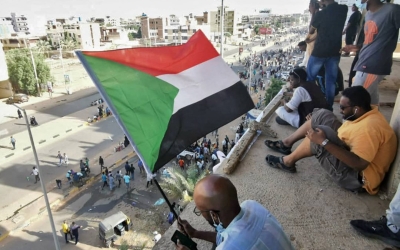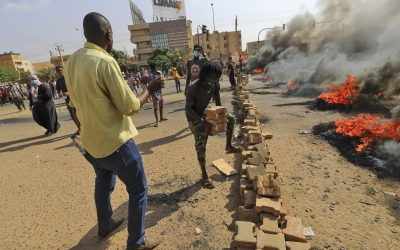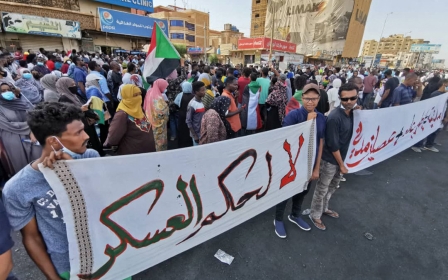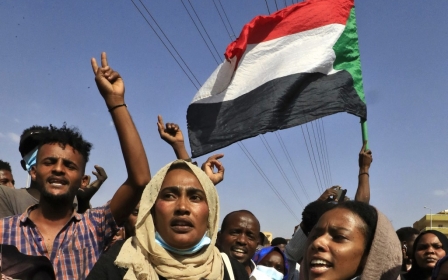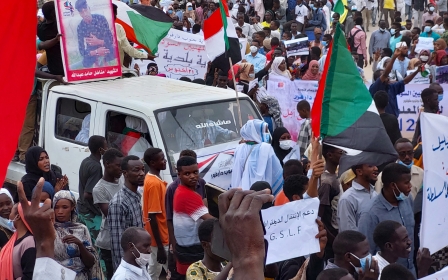Sudan: US envoy says military exercised 'restraint' at deadly protests
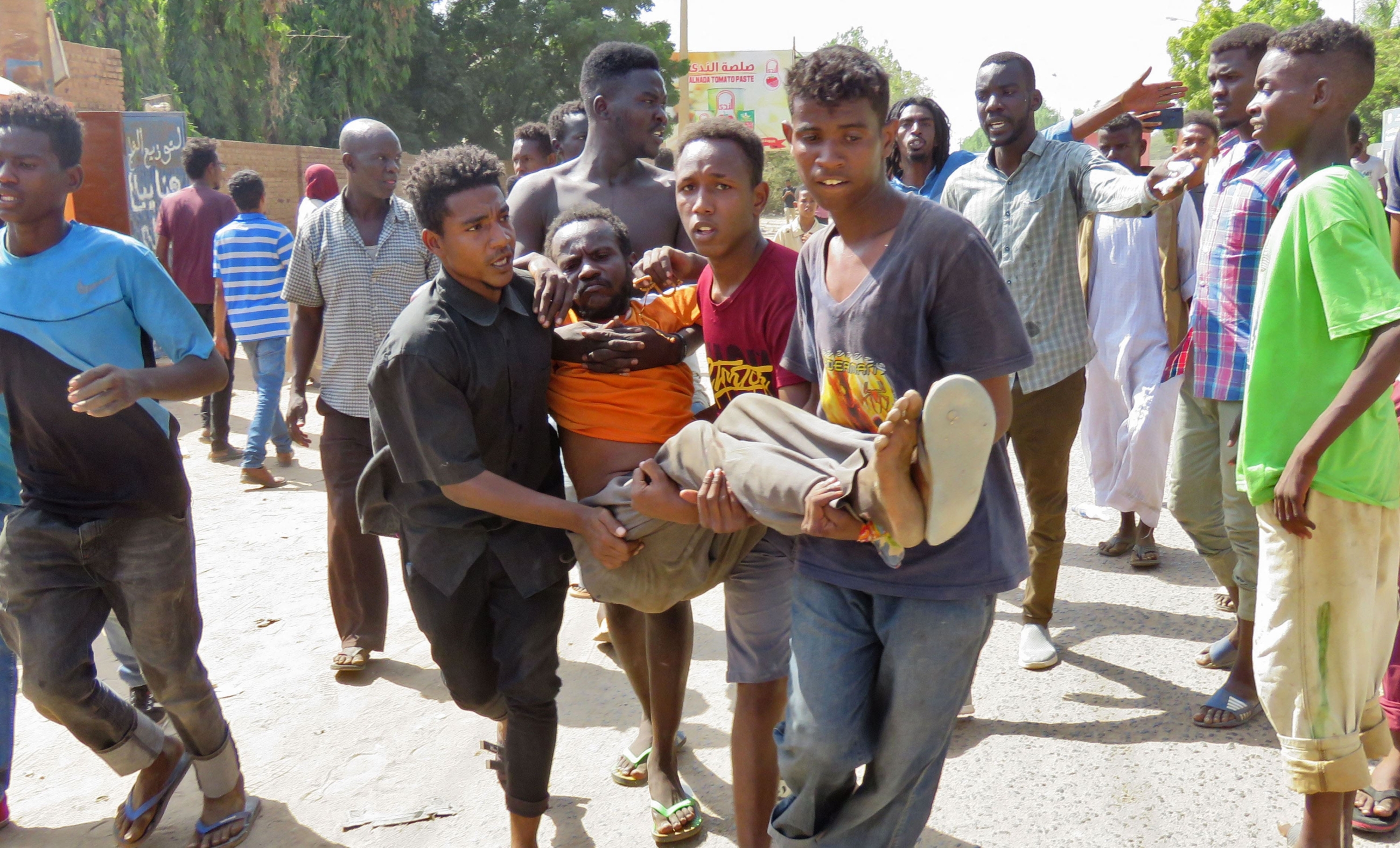
The US special envoy for the Horn of Africa said on Tuesday that the military and security services exercised "restraint" in their handling of nationwide protests in Sudan on Saturday, despite their use of tear gas and live bullets on protesters, which killed three and wounded at least 100 more.
Speaking during a press briefing from Washington DC, Jeffrey Feltman said the people killed and wounded at the "March of Millions" against the military coup were "far too many", but that "by and large, not entirely, the military and security services exercised restraint".
New MEE newsletter: Jerusalem Dispatch
Sign up to get the latest insights and analysis on Israel-Palestine, alongside Turkey Unpacked and other MEE newsletters
"The demonstrators stayed away from sensitive military locations", he added, which reduced "the potential for more conflict and violence" and "demonstrated an understanding by the Sudanese people themselves that they have to be careful and find a way back to the civilian-military partnership that this transition requires."
Feltman was speaking after a week of violence and political chaos in Sudan, sparked by the country's top general, Abdel Fattah al-Burhan, who dissolved the government, declared a state of emergency and detained Sudan's civilian leadership on Monday.
At least three people were shot dead and more than 100 people wounded during Saturday's demonstrations, according to medics, who reported that those killed had bullet wounds in their head, chest or stomach.
Middle East Eye's correspondent saw the army firing live bullets at protesters on Khartoum's Manshiya Bridge.
Other reports emerged later in the day that security forces were storming a hospital in the nation's capital.
With Saturday's deaths, the number of protesters killed by security forces this week climbed to at least 14, according to a Reuters count.
However, one senior US official told AFP they estimate that 20 to 30 people have died.
Police forces have denied the killings, or using live bullets, in contradiction to eyewitness accounts.
Sudan had been ruled since August 2019 by the joint civilian-military Transitional Sovereign Council, alongside Prime Minister Abdalla Hamdok's government, as part of the now derailed transition to full civilian rule following the removal of longtime ruler Bashir.
Hamdok and other top leaders have been under military guard since the takeover, either in detention or effective house arrest.
'Hijacked and betrayed'
Speaking on Tuesday, Feltman condemned the coup and called for "the immediate restoration of democratic governance in Sudan", saying that military leaders had "hijacked and betrayed the aspirations of the Sudanese people for a peaceful, democratic country".
"We remain extremely concerned about Sudan's democratic trajectory," he added. "To the freedom loving Sudanese, and to those who would seek to rob them of their democratic ambition, I say that the world is watching."
The World Bank and the United States froze aid after the coup, moves that will hit hard in a country already mired in a dire economic crisis.
"I think that the generals will realise that they need the support of the international community when it comes to issues such as economic development, debt relief, access to financing via the World Bank and the IMF," he continued. "But that international support requires getting the transition back on track."
Feltman didn't give much away when asked about the interests of the United Arab Emirates and other regional powers, whose motivations in Sudan's struggle for power have been questioned.
Burhan has made numerous visits in recent years to Sudan's neighbours, including the UAE, which reportedly sent weapons in April 2019 to Sudan’s Rapid Support Forces, a paramilitary group linked to the genocide in Darfur.
"Our impression is that whether we're talking about the Emirates or the Egyptians or the other African neighbours...is that there is a real interest in stability in Sudan," he said.
Feltman was more forthcoming on Russia, however. "I will say we were concerned by the initial Russian statements after the October 25 military takeover," he said. "They seemed to almost bless the military take over."
He added that a subsequent United Nations Security Council statement, that Russia signed, was "much more in line with with the international consensus".
Military has 'important role'
"The civilians feel burned by what their military partners did on October 25th," Feltman added, saying that they will have "a high expectation of the types of guarantees they would need to be able to trust the military in a partnership again."
"Our own view," continued Feltman, "[is that] the military does have an important role to play in the transition, and... after the transition, after democratic elections."
"They still are going to have an important, prestigious role to play in terms of preserving Sudan's unity and security," he said.
Sudan's resistance committees have in recent days reiterated that they want no negotiation, partnership or compromise with the military.
Middle East Eye delivers independent and unrivalled coverage and analysis of the Middle East, North Africa and beyond. To learn more about republishing this content and the associated fees, please fill out this form. More about MEE can be found here.


